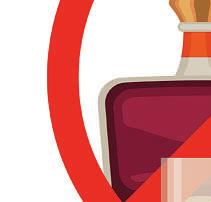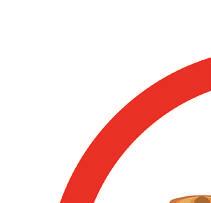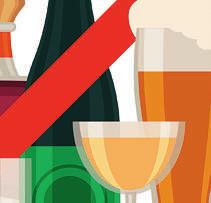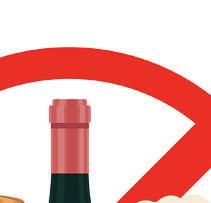
2 minute read
MARKETINGBODIESCALLON SCOTTISH GOVERNMENT TO THINKAGAIN
The BPMA has issued its response to the Al A cohol Advertising Consultation in Scotland which closed on 9March
InNovember,the Scottish Government opened aconsultation to seek views on whether to place strict restrictions on alcoholadvertising and marketing.

Following theconsultation, the Advertising Association, ISBA and the IPAregistered afinal condemnation and together withadvertising bodies and other media organisations, issued ajoint statement.
Advertising bodies and media organisations have reacted strongly against theScottish Government’sproposals to severely restrict or remove alcohol advertising and marketing in their responses to theScottish Government'sconsultation whichclosed on 9thMarch 2023
The Advertising Association, ISBA and theIPA,whichrepresent their members in Scotland, have takenthe unprecedented step of issuing ajoint public statement, alongside theMarketing SocietyScotland, theBritish Promotional Merchandise Association, theCinema Advertising Association and theUKCinemaAssociation, theScottish Newspaper Society, and Outsmart.
The statement said: “Westand together and publicly reject theScottish Government’sproposals to introduce swingeing alcoholadvertising and marketing bans. Whilst we understand the Government’sdesiretoreduce alcohol consumption harms in Scotland, there is no evidence that advertising bans will achievethat aim. The proposals set out by theScottish Government will fail to address theproblem. Such measures will be harmful to theScottish economy–including local communities –toScotland’sadvertising and creative industries,and to theScottish media including publishers, broadcasters and cinemas, as well as theoutdoor advertising sector.Atthe end of theday, we aretalking about an impact on Scottish businesses, Scottish jobs and Scottish communities fornodiscernible benefit.”
It added: “Wecallfor afundamental re-think of theproposals withafocus on targeted and practical policies that will facilitatebehaviour change without damaging theScottish economyand theadvertising and creative industries that areimportant to the entrepreneurial Scotland that theScottish Government wants to see.”

The proposals were announced as part of apublic consultation launched latelast year seeking to end what the Scottish government described as thecountry’s“deep,longstanding and troubled relationship with alcohol”
According to Office of National Statistics figures, Scotland and NorthernIreland were theUKcountries with thehighest alcohol-specific deathrates in 2021, with 22.4and 19.3 deaths per 100,000 persons, respectively
In England and Wales therates of alcoholspecific deaths, were 13.9 and15.0deaths per 100,000 persons, respectively
Therewere1,245 alcohol-specific deaths in Scotland in 2021.
Statistics from theScottish HealthSurvey 2021 found that 23% of people in Scotland drink hazardous or harmful levels of alcohol (morethan 14 units per week), with 31%of men and 16%ofwomen reporting this level of consumption.


The consultation sought views on changes to howalcoholisadvertised, with regulations that couldinclude aban on sponsorships forsport and live events, and distilleryand breweryshops also barred from selling branded merchandise to visitors.
However, theidea has met withplenty of controversy,withmanyScots angry and anxious about theeffect suchaban would potentially have on Scotland’simage abroad.
Critics have also pointed to countries, suchasNorway, wheretighter control of alcoholdistribution and promotion have not been accompanied by adrop in consumption. They suggest that an approach whichleans moretowards education and messages of moderation or abstinence might be morefruitful, especially as statistics showthat moreyoung people arenow teetotal.
The Scottish Government has previously sought to tryand tackle theimpact of alcoholabuse by introducing theUK’sfirst minimum price foralcohol.
From 2018,the minimum price charged foraunit of alcoholwas set at 50p.
Research published in theLancet suggests it has been associated withabout 150 fewerdeathsayear
Researchers from Public HealthScotland (PHS), theUniversityofGlasgowand the UniversityofQueensland, Australia, said therewas a“significant” 13.4%reduction in thenumber of deaths wholly attributable to alcoholconsumption compared with an estimateofthe deaths that would have occurredhad thelegislation not been implemented.
Therewas also a4.1%reduction in hospitalisations forconditions wholly attributable to alcoholconsumption, equivalent to avoiding 411hospitalisations a year on average.










